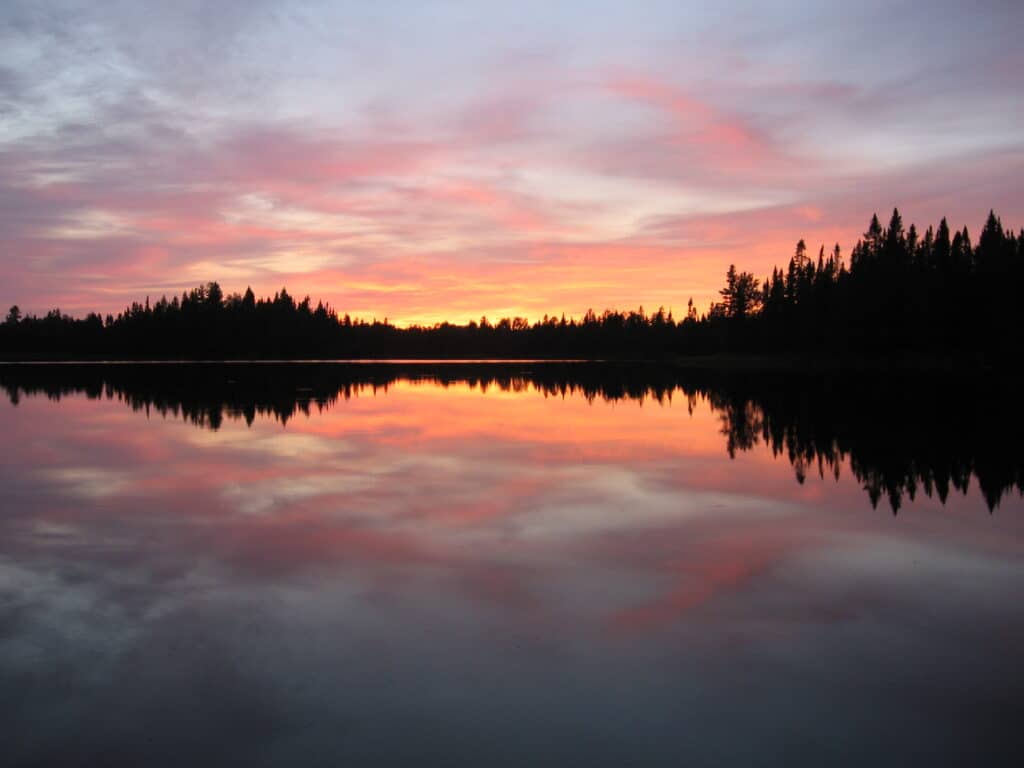
Bills introduced this week in the Minnesota Legislature seek to permanently prohibit copper-nickel mining on state-owned land in areas that drain toward the Boundary Waters Canoe Area Wilderness. Versions in both houses were authored by Sen. Kelly Morrison and Rep. Sandra Feist, respectively.
The legislators are both members of the DFL Party from the Twin Cities area. With their party in control of all the legislature and governorship, the bills could succeed in becoming law by the time the session ends in May.

“I am thrilled to be the chief House author of the Boundary Waters Permanent Protection Act. Passing this bill is essential to protect the economic, recreational, and ecological gem that is the Boundary Waters Canoe Area Wilderness,” said Representative Sandra Feist. “I’ve experienced the adventure of exploring the Boundary Waters with my family and want to ensure that all Minnesotans have the same opportunity for generations to come.”
‘Wrong place’
Iron and taconite mining would not be affected by the policy, only mining metals like copper and nickel, which are found in ore containing sulfides. The type of mining has a long record of pollution, and proposals near the Boundary Waters have been the focus of significant support and opposition since they first emerged about 15 years ago.
The federal government is currently considering a 20-year moratorium on copper-nickel mining on its lands within the Boundary Waters watershed. The Biden administration has also rejected renewing leases a mining company would need to extract minerals owned by the American people. The new legislation would only affect state-owned property.
“The Boundary Waters is the wrong place for toxic sulfide-ore copper mining. Allowing this type of hard rock mining in the headwaters of the Wilderness would forever degrade this landscape,” said Ingrid Lyons, Executive Director of Northeastern Minnesotans for Wilderness, which leads the Campaign to Save the Boundary Waters. “The Boundary Waters Permanent Protection Bill provides the best solution for protecting this one-of-a-kind Wilderness by prohibiting sulfide-ore copper mining on state lands in the Boundary Waters headwaters.”
Upstream protection
The Campaign to Save the Boundary Waters pointed out that allowing such mining on the state lands would threaten causing pollution, alter the ecosystem, and risk degrading the air, water, and other resources.

“The Boundary Waters Canoe Area Wilderness is recognized the world over for its pristine waters, unique ecosystems and stunning beauty. Let’s permanently protect this watery wilderness before it’s too late and we’ve lost it forever,” said Senator Kelly Morrison.
No mining is allowed by state law within the Boundary Waters Canoe Area Wilderness. The new legislation would simply amend that law to expand the prohibition to state lands outside the protected area — but upstream.
“[N]o state-owned or administered land may be leased for exploration or mining of minerals, and no state permits, licenses or leases shall be issued to use any other state natural resources for any mineral exploration or mining operations,” in the entire wilderness and its watershed,” the legislation reads.
The House version of the bill has co-authors Reps. Becker-Finn, Jordan, Kozlowski, and Finke. It was referred to the Environment and Natural Resources Finance and Policy, chaired by Rep. Rick Hansen. The Senate version has co-authors Sens. Cwodzinski and McEwen, and was referred to the Environment, Climate, and Legacy Committee, chaired by Sen. Foung Hawj.
More information:
- SF 167 – Minnesota Senate
- HF 329 – Minnesota House of Representatives
- Boundary Waters Permanent Protection Bill introduced in Minnesota House and Senate – Save the Boundary Waters

